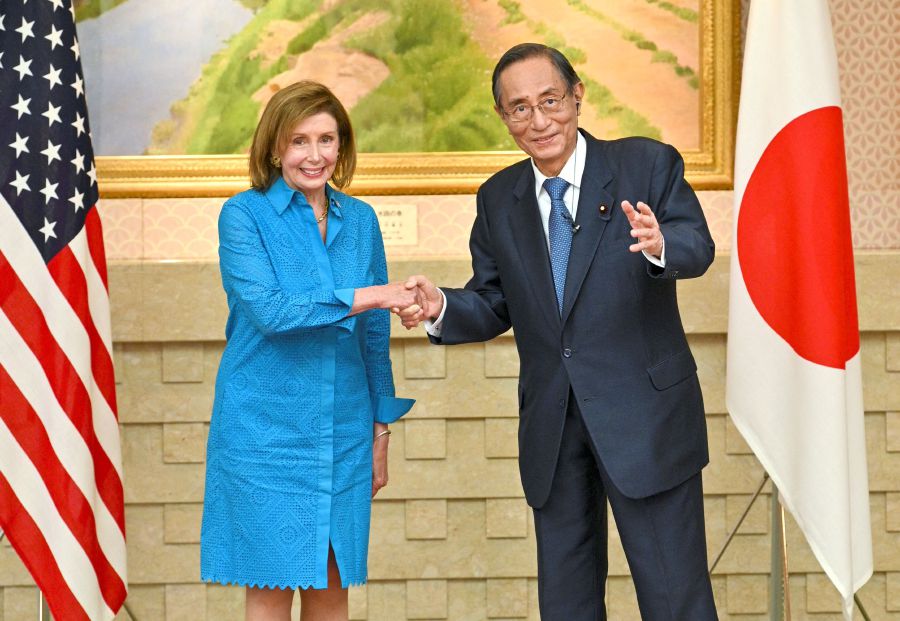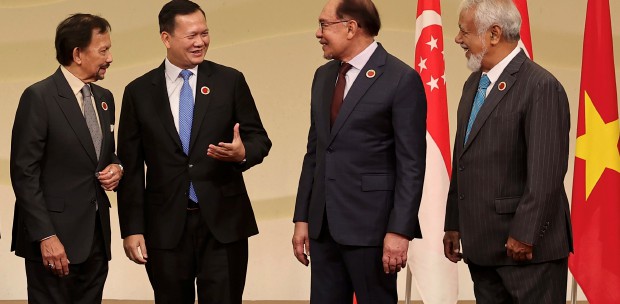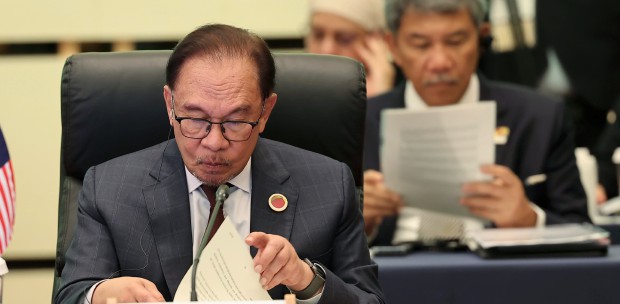TOKYO: Japan's diplomacy with Asean is seen to have become more challenging following the tensions that were precipitated by United States House of Representatives Speaker Nancy Pelosi visit to Taiwan recently.
Southeast Asia is seen as a region at the forefront of rivalry between Japan and China, but Asean is known for its principle of neutrality toward major powers, and its dialogue partners.
According to a report in Kyodo News, some international relations experts said Tokyo should not try to pressure Asean into its camp if it wants to maintain a relationship of mutual trust with the 10-member group.
"The view that Southeast Asia has become the site of a turf war is fundamentally wrong, and is an outdated mindset," said Shin Kawashima, a professor of international relations at the University of Tokyo's Graduate School of Arts and Sciences.
"Southeast Asian nations would not choose a side. Their sense of themselves has increased along with their economic growth, and Japan's relative economic power has declined, so we shouldn't interact with them in the same manner as that of several decades ago," he said.
The recent Asean foreign ministerial meeting in Phnom Penh, that also saw China, Japan, Russia and the United States participating in other sessions, is seen by some as a showdown between the world powers.
Pelosi's visit to Taiwan had China reacting furiously as Beijing considers it part of China.
The Chinese reactions included the launch of a four-day, large-scale live-fire military drill near Taiwan using ballistic missiles, some of which fell into Japan's exclusive economic zone.
The Kyodo News report said the rift between the countries was already deep over the conflict in Ukraine.
The Group of Seven nations, including Japan and the United States, have introduced a raft of severe economic sanctions on Russia but China has refrained from taking similar steps.
In an apparent protest at Japan's siding with the core of the Western alliance over Taiwan and Ukraine, the Chinese and Russian foreign ministers -- Wang Yi and Sergey Lavrov -- had left their seats by the time their Japanese counterpart Yoshimasa Hayashi spoke at a parallel session of the East Asia Summit last Friday.
China had also canceled one-to-one talks between Wang and Hayashi shortly before they were supposed to meet in the Cambodian capital.
Beijing cited a G-7 statement that it said contained "groundless accusations" against it over the response to Pelosi's visit to Taiwan.
Tomotaka Shoji, head of the Asia and Africa Division at the National Institute for Defense Studies, said the mounting tensions could have a great negative impact on Asean.
He said the repercussions could also be felt in the 15-member Regional Comprehensive Economic Partnership (RCEP) agreement, the world's largest trade bloc.
The RCEP comprises the 10 Asean members, along with Australia, China, Japan, New Zealand and South Korea.
Under the current circumstances, Kawashima said it would be wiser for Japan to stop short of requiring Southeast Asian nations to pass "a test of loyalty to democracy" as it would help Japan to continue playing a major role in the region.
Shoji said a survey conducted this year by the ISEAS-Yusof Ishak Institute in Singapore showed that China's influence in the region was greatly increasing.
The survey showed that 54.4 per cent of 1,677 respondents from Asean members said China was the most influential political power in Southeast Asia, compared with the United States at 29.7 per cent, and Japan at only 1.4 per cent.
"In Japan, many people tend to form a negatively biased view on China's rise, but we'd better not label it as a negative thing for Asean nations," Shoji said.
The survey also showed Japan remained the most trusted major power for people in Southeast Asia, with 54.2 per cent expressing confidence in the country to "do the right thing" to provide global public goods. The United States followed at 52.8 per cent and China at 26.8 per cent.





